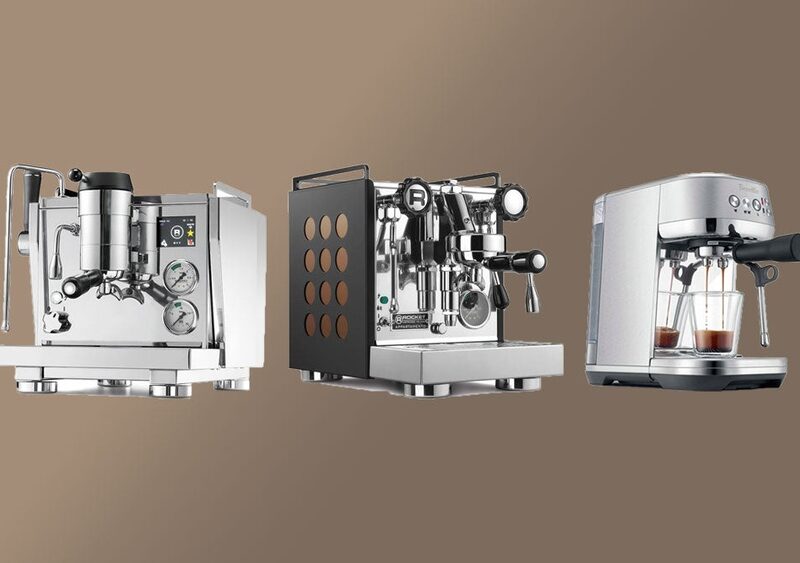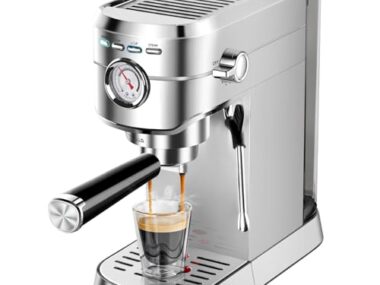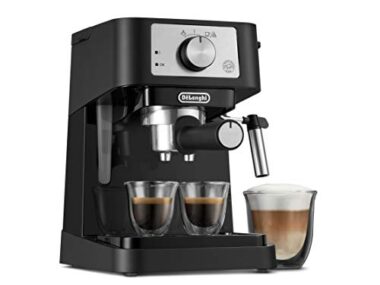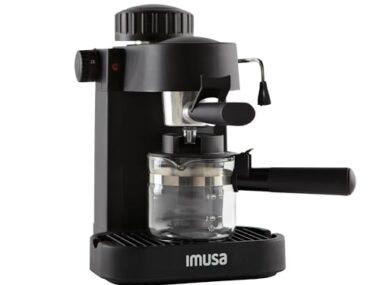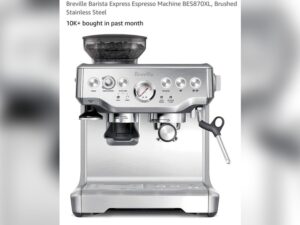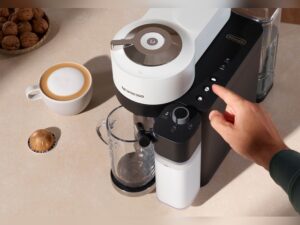If you love a rich, flavorful cup of espresso at home, choosing the right espresso machine is a game-changer. But with so many options out there, how do you find one that fits your needs and budget?
You want a machine that’s easy to use, makes great coffee, and lasts for years. This guide will help you cut through the confusion and pick the perfect espresso machine for your daily coffee ritual. Keep reading—you’re just a few steps away from brewing espresso like a pro.
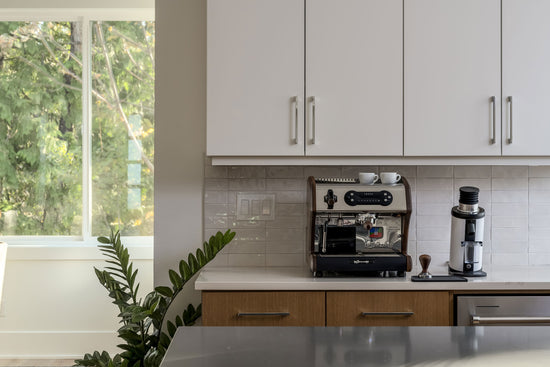
Credit: clivecoffee.com
Types Of Espresso Machines
Choosing the right espresso machine can be confusing. Different types suit different needs and skills. Understanding the main types helps you pick the best one for your home or office. Each type offers a unique experience and level of control over your coffee.
Manual Machines
Manual espresso machines give full control over the brewing process. You grind, tamp, and pull the shot yourself. It takes practice to get a good espresso. These machines are for coffee lovers who enjoy hands-on making. They do not have automatic features, so skill matters a lot.
Semi-automatic Machines
Semi-automatic machines have an electric pump for consistent pressure. You still grind and tamp the coffee. The machine controls the water flow with a switch or button. This type balances control and convenience well. It suits beginners who want to learn espresso basics.
Automatic Machines
Automatic machines control both pressure and water amount. You only need to grind, tamp, and start the machine. It stops brewing automatically after a set time. This type helps make espresso with less effort. It is a good choice for busy users.
Super-automatic Machines
Super-automatic machines do everything from grinding to frothing milk. Just add coffee beans and press a button. These machines save time and simplify espresso making. Perfect for those who want quick coffee without manual work. They are often more expensive but very user-friendly.
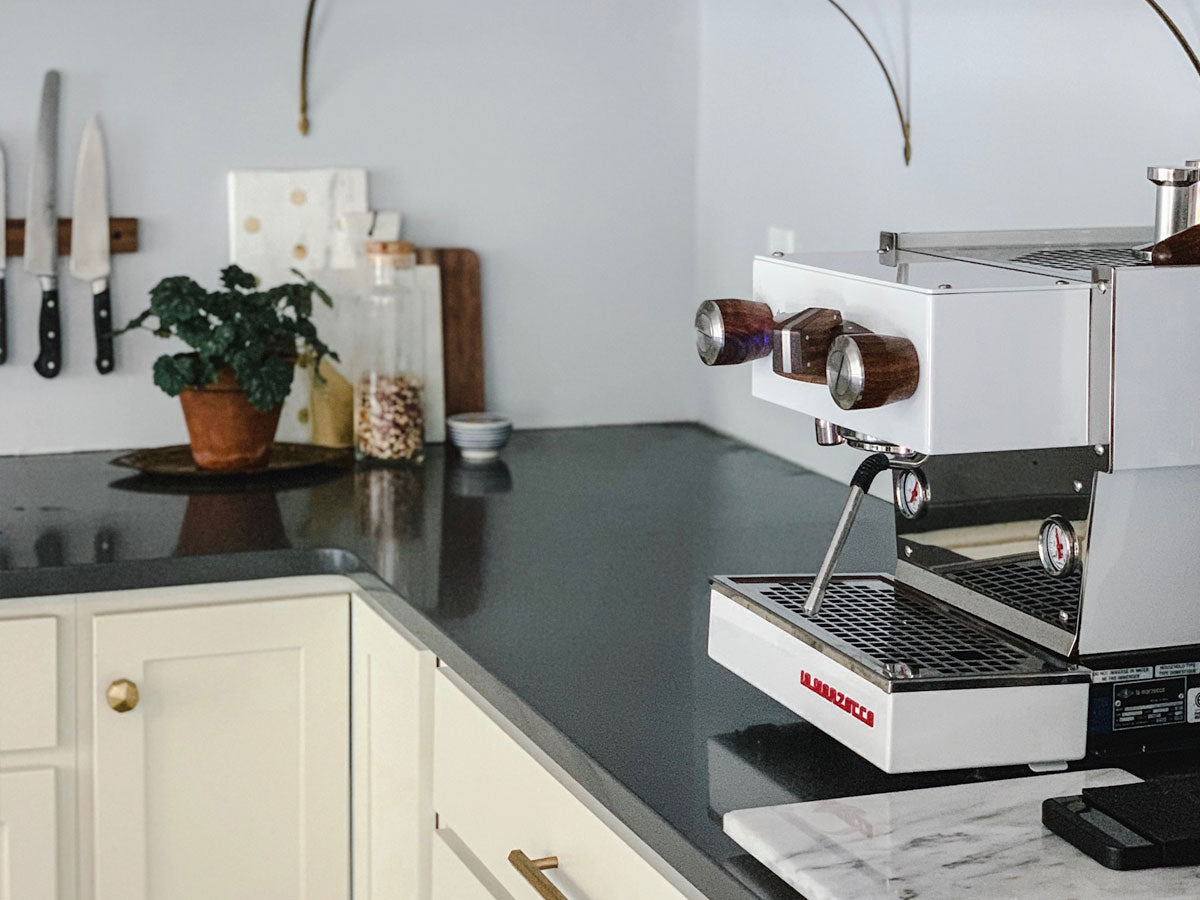
Credit: methodicalcoffee.com
Key Features To Consider
Choosing the right espresso machine means knowing what features matter most. These features affect the taste, ease, and quality of your coffee. Focus on key parts to get good results every time. Here are some important features to check before buying an espresso machine.
Boiler Type And Capacity
The boiler heats water for brewing and steaming. Single boilers are common in simple machines. They heat water for one task at a time. Dual boilers heat water separately for brewing and steaming. This saves time and keeps temperature steady. Boiler size matters too. A larger boiler holds more water. It suits those who make many cups daily. Small boilers work well for occasional use. Choose a boiler type and size that fit your coffee needs.
Pressure And Temperature Control
Good pressure is key to extracting rich coffee flavors. Ideal pressure is around 9 bars. Machines with adjustable pressure help customize taste. Stable temperature keeps coffee consistent. Look for machines with precise temperature control. This avoids bitter or weak espresso. Some machines have digital displays for easy control. Check if the machine maintains pressure and temperature well during use.
Grinder Integration
Fresh ground coffee tastes better. Some espresso machines have built-in grinders. This saves space and makes brewing faster. Grinder quality affects grind size and consistency. Consistent grind size improves espresso flavor. If the machine lacks a grinder, buy a separate one. Choose grinders with adjustable settings. This lets you change grind size for different beans and tastes.
Steam Wand Quality
The steam wand froths milk for lattes and cappuccinos. A good steam wand is easy to use and clean. It should create smooth, creamy foam. Look for a wand with good pressure and heat control. Some wands swivel for better reach. Stainless steel wands last longer and resist rust. Test the wand if possible to check steam strength and ease.
Size And Design
Choosing the right espresso machine means thinking about size and design. These two factors affect where you place the machine and how it fits your kitchen style. A good fit makes your coffee area look neat and helps you enjoy making espresso every day.
Counter Space Requirements
Espresso machines come in many sizes. Some are small and fit well on any countertop. Others are large and need more space. Measure your counter before buying. Think about space for accessories like a grinder or milk frother. Leave extra room for easy cleaning and use.
Aesthetic Styles
Design styles range from modern to classic. Choose a style that matches your kitchen décor. A sleek machine suits a modern kitchen. A retro design adds charm to a vintage space. Pick colors and shapes that make you happy to see every day.
Build Materials
Materials affect both look and durability. Stainless steel machines are strong and last long. Plastic models are lighter and often cheaper. Metal parts handle heat better and give a high-end feel. Pick materials that fit your budget and style needs.

Credit: clivecoffee.com
Ease Of Use And Maintenance
Choosing an espresso machine that is easy to use and maintain saves time and effort. A machine that cleans itself or has simple parts makes your coffee routine smooth. Maintenance affects how long the machine lasts and how good your coffee tastes. Focus on cleaning, controls, and parts for the best experience.
Cleaning And Descaling
Espresso machines need regular cleaning to stay fresh and work well. Look for machines with removable drip trays and water tanks for easy cleaning. Descaling removes mineral build-up inside the machine. Choose a model with clear instructions or automatic descaling features. This keeps your machine running smoothly and your coffee tasting great.
User Interface
A simple user interface makes brewing espresso fast and fun. Machines with clear buttons or touch screens reduce confusion. Some machines offer pre-set drink options for convenience. Check if the display is easy to read and understand. A good interface helps avoid mistakes and speeds up your coffee making.
Replaceable Parts
Espresso machines need parts replaced over time. Find machines with easy-to-find and replace parts like filters and gaskets. This saves money and avoids long repairs. Machines with modular parts allow quick fixes at home. Check if the brand offers good customer support for parts and repairs.
Price And Warranty
Choosing an espresso machine means thinking about price and warranty. These two factors affect your purchase and long-term satisfaction. A good machine fits your budget and offers reliable support.
Price ranges differ a lot. You can find machines from low-cost to very expensive. Each price range has pros and cons. Understanding these helps you pick the right one.
Budget Options
Budget espresso machines cost less but still make good coffee. They have basic features and simpler designs. These machines suit beginners or occasional drinkers. Maintenance is usually easy and parts are affordable. Expect fewer settings and slower heating times.
Mid-range Choices
Mid-range machines balance price and quality well. They offer more control and faster brewing. You get better temperature stability and stronger pressure. These models often include built-in grinders or frothers. Perfect for coffee lovers who want more features without high costs.
High-end Models
High-end espresso machines deliver excellent coffee and durability. They have advanced technology and precise controls. You can customize every step of the brewing process. These machines often use stainless steel and last longer. Ideal for serious enthusiasts or small cafes.
Warranty And Support
A solid warranty protects your investment. It covers repairs and defects for a set time. Look for at least one year of coverage. Check if the warranty includes parts and labor. Good customer support helps with troubleshooting and spare parts. This saves money and stress over time.
Additional Features
Choosing an espresso machine involves more than just basic functions. Additional features can improve your coffee experience. These extras make brewing easier and more fun. They also help you create different coffee styles at home. Consider these features to find the best fit for your needs.
Programmable Settings
Programmable settings let you customize your espresso. Set the water temperature and shot volume. Save your favorite recipes for quick brewing. This feature ensures consistency in every cup. It is perfect for those who want control and convenience.
Milk Frothing Capabilities
Milk frothing adds texture and flavor to your drinks. Some machines have built-in steam wands or automatic frothers. These tools create creamy foam for lattes and cappuccinos. Easy frothing means you can enjoy cafe-style drinks at home. Check frothing options if you love milk-based coffee.
Smart Connectivity
Smart connectivity allows control via smartphone apps. Start brewing from another room or schedule brew times. Some apps offer maintenance alerts and recipe sharing. This feature adds convenience and modern technology. It suits tech lovers who want a smart coffee routine.
Testing And Reviews
Testing and reviews play a key role in choosing a good espresso machine. They provide real insights about machine performance. Reading detailed reviews helps avoid poor purchases. Reviews show how machines work in daily use. They reveal strengths and weaknesses beyond the specs.
Taste And Consistency
Taste is the heart of a good espresso. Testing machines includes brewing many shots. Experts check flavor balance, richness, and smoothness. Consistency means each shot tastes the same every time. Machines that deliver steady quality score high. Taste tests reveal how well a machine handles different beans.
User Feedback
User feedback offers honest opinions from real buyers. It shows how machines perform over weeks or months. Users share issues like leaks or noise. They also praise easy cleaning and fast heating. Reading many reviews helps spot common problems. Positive feedback often highlights durability and ease of use.
Expert Opinions
Experts test espresso machines with experience and skill. They measure pressure, temperature, and extraction time. Experts compare models side-by-side for a fair view. Their reviews focus on build quality and features. Expert tests help understand technical details clearly. Many experts publish detailed guides and videos.
Frequently Asked Questions
What Features Matter Most In An Espresso Machine?
Key features include pressure consistency, temperature control, and grinder quality. These ensure rich flavor and perfect crema. Durability and ease of cleaning are also important for long-term use and maintenance.
How Much Should I Spend On A Quality Espresso Machine?
A good espresso machine ranges from $150 to $1000. Entry-level models suit beginners, while advanced machines offer better features and durability for enthusiasts.
Should I Choose Manual Or Automatic Espresso Machines?
Manual machines offer control but require skill. Automatic machines are user-friendly and consistent, ideal for beginners or busy users seeking convenience.
How Important Is The Grinder In Espresso Making?
A quality grinder ensures uniform coffee grounds, impacting flavor and extraction. Built-in grinders add convenience, but standalone grinders offer better precision.
Conclusion
Choosing the right espresso machine takes some thought and care. Think about your budget, space, and how often you will use it. Consider the features you want and the type of coffee you enjoy. Don’t rush your decision—compare different models and read reviews.
A good machine makes your coffee moments better every day. Enjoy the process and soon you will have delicious espresso at home. Simple steps lead to great coffee. Your perfect espresso machine is waiting.
